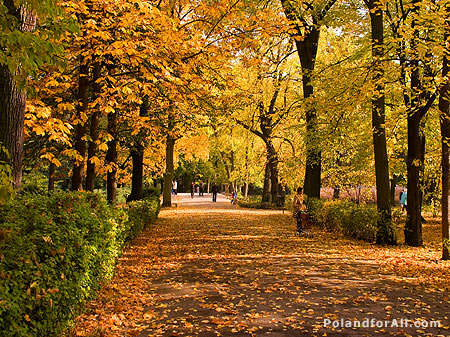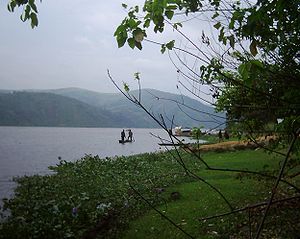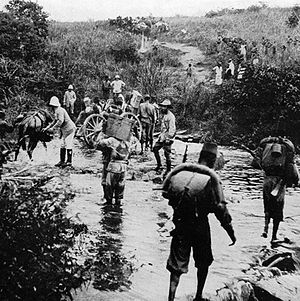Once again I thought that I'd blow the dust off of this blog before it's too late. This time, though, I am going to post a little about the life of Joseph Conrad, author of Heart of Darkness, the first work that we will be reading.
On my way back from Maine, I read John Stape's recent biography of Conrad, The Several Lives of Joseph Conrad. Mr. Stape often refers to Conrad as a man who was caught between two centuries: the nineteenth and the twentieth. We will be especially conscious of this as we read Heart of Darkness, a work that literally straddles the turn of the century in its writing and publication.
Although Conrad has written one of the greatest English-language novels and is known as a stylist, he did not grow up speaking English. Although his family was Polish, his birthplace is now in what is the Ukraine. Throughout almost the whole of Conrad's life (1857-1924), though, Russia controlled much of Poland and all of the Ukraine. Conrad's parents protested against Russian rule and were sent into exile because of their activism. Their young son often accompanied them. However, perhaps unsurprisingly, Conrad himself was not politically active and refused to be involved in various causes. He ultimately became a British citizen, and his most notable political writing was on behalf of his adopted country's involvement in World War I.
Here is a photo from Warsaw, one of the places where Conrad lived as a child:

Shortly before his father's death, Conrad moved with him to Krakow and therefore outside of Russia. Here is a picture of that historic city:

After the death of both of his parents, Conrad was raised by his grandmother who lived in the part of Poland not under Russia's control but that of the more tolerant Austria-Hungarian Empire. His uncle soon took responsibility for him, guiding him into a profession and helping him out as need be. Conrad chose to go to sea, as part of what we would now call the merchant marines. He ultimately became a captain although, as Stapes notes, he rarely had the kind of job he was qualified for. In part, this happened because technology was advancing and ships needed fewer men.
Below is a picture of the Joseph Conrad, a ship built in 1882 and later renamed after him. It is now docked at Conneticut's Mystic Seaport:

At first, Conrad worked on French ships, sailing to the Carribbean and South America. He may have run guns in Colombia. He later worked on English ships, sailing to Africa, Malaysia, and, ultimately, Australian. Towards the end of his career, he was employed by the Societe du Commerce du Haut-Congo, a Belgian concern. This job would take him to the Congo, and his experience in what is now known as the Democratic Republic of the Congo would be the basis for Heart of Darkness. Below is a picture of the Congo River:

Here is a picture from 1918, almost thirty years after Conrad's time in Africa. However, I think that it will give you a better idea of what Conrad saw there.

After working in the Congo, Conrad became very ill. He did recover, but as it turned out, his health was permanently affected and he would not work on such a long voyage again. He sailed on short runs off England's coast, and by 1895, he had left the merchant marine to become a full-time writer.
A year earlier (1894) he had published his first novel, Almayer's Folly, a story set in Borneo, an island near Malaysia and the Phillippines. This novel was written in English.

A year later (1896) Conrad would marry Jessie George, a young woman from London. He was 39, and she was 23. At first their lives were quite difficult. Both were not in good health, and Conrad's novels were critical successes but not popular ones. It also appears that writing could be very difficult and painful for Conrad.
Here is a picture of Conrad with his older son, Borys. The white-bearded man in the picture is their landlord.
 Joseph and Jessie Conrad had another son, John. These are both sons as young men. The picture was probably taken after Borys had served in WWI.
Joseph and Jessie Conrad had another son, John. These are both sons as young men. The picture was probably taken after Borys had served in WWI.
Joseph Conrad did not achieve financial success as an author until right before WWI. As I had mentioned, he had achieved critical success long before then.
Interestingly, Conrad and his family did not return to Poland until 1914. The outbreak of war stranded them in Zakopane, a resort town in the part of Poland ruled by Austria-Hungary. The Conrads fortunately managed to return to England in the late fall of 1914 although their journey back was perilous and uncertain. Here is a picture of Zakopane:

Argh! I didn't mean for this picture to be so big.
Here is a picture of one of Conrad's homes in England.

Today I received another biography of Conrad from Amazon. This biography by John Batchelor emphasizes the writing more, so I'm looking forward to starting it. The Several Lives of Joseph Conrad is interesting at first, but once Conrad turns to writing, it is less so.
No comments:
Post a Comment